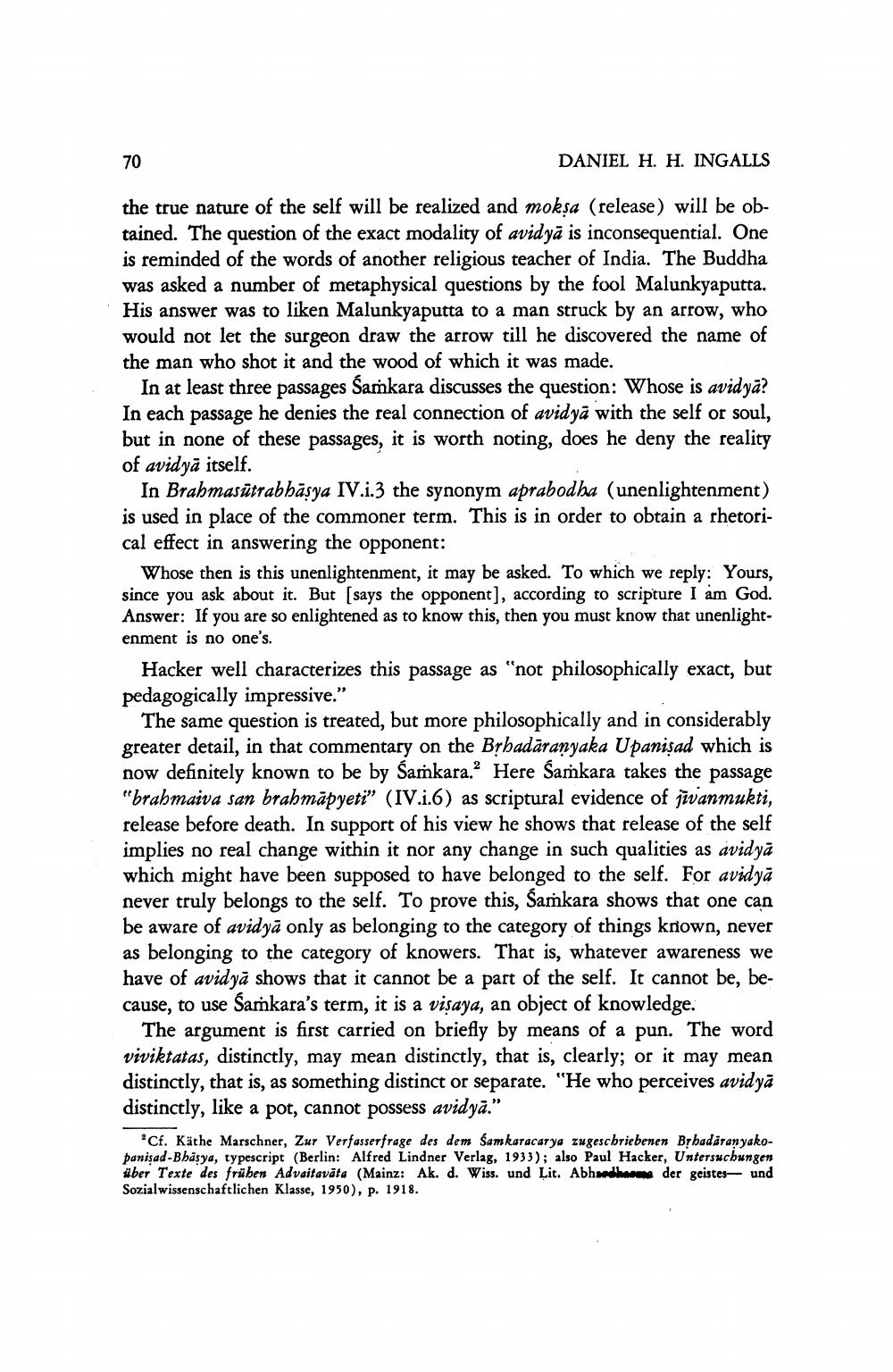________________
DANIEL H. H. INGALLS
the true nature of the self will be realized and mokșa (release) will be obtained. The question of the exact modality of avidyā is inconsequential. One is reminded of the words of another religious teacher of India. The Buddha was asked a number of metaphysical questions by the fool Malunkyaputta. His answer was to liken Malunkyaputta to a man struck by an arrow, who would not let the surgeon draw the arrow till he discovered the name of the man who shot it and the wood of which it was made.
In at least three passages Samkara discusses the question: Whose is avidyā? In each passage he denies the real connection of avidyā with the self or soul, but in none of these passages, it is worth noting, does he deny the reality of avidyā itself.
In Brahmasūtrabbasya IV.1.3 the synonym aprabodha (unenlightenment) is used in place of the commoner term. This is in order to obtain a rhetorical effect in answering the opponent:
Whose then is this unenlightenment, it may be asked. To which we reply: Yours, since you ask about it. But [says the opponent], according to scripture I am God. Answer: If you are so enlightened as to know this, then you must know that unenlightenment is no one's.
Hacker well characterizes this passage as "not philosophically exact, but pedagogically impressive."
The same question is treated, but more philosophically and in considerably greater detail, in that commentary on the Brbadāranyaka Upanisad which is now definitely known to be by Samkara.? Here Samkara takes the passage "brahmaiva san brahmäpyeti" (IV.1.6) as scriptural evidence of jīvanmukti, release before death. In support of his view he shows that release of the self implies no real change within it nor any change in such qualities as avidya which might have been supposed to have belonged to the self. For avidya never truly belongs to the self. To prove this, Samkara shows that one can be aware of avidyā only as belonging to the category of things known, never as belonging to the category of knowers. That is, whatever awareness we have of avidyā shows that it cannot be a part of the self. It cannot be, because, to use Samkara's term, it is a visaya, an object of knowledge.
The argument is first carried on briefly by means of a pun. The word viviktatas, distinctly, may mean distinctly, that is, clearly; or it may mean distinctly, that is, as something distinct or separate. "He who perceives avidya distinctly, like a pot, cannot possess avidyā."
Cf. Käthe Marschner, Zur Verfasserfrage des dem Samkaracarya zugeschriebenen Brbadaranyakopanisad-Bhasya, typescript (Berlin: Alfred Lindner Verlag, 1933); also Paul Hacker, Untersuchungen über Texte des früben Advaitavāta (Mainz: Ak. d. Wiss. und Lit. Abhaadhooms der geistes- und Sozialwissenschaftlichen Klasse, 1950), p. 1918.




